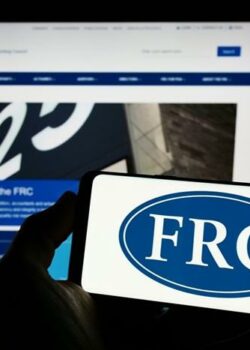ESG (environmental, social, and governance) is getting much criticism these days, as did CSR (corporate social responsibility), which it replaced. More generally, corporate reporting is becoming something of a “dog’s dinner”. And the problem is getting worse.
These issues distract attention from the real issue: “the global governance crisis”, as I call it. It is a problem in many organisations, and in sectors beyond just business. And PwC’s Global Crisis survey alone is ample evidence of it, with listed companies saying they expect to experience a corporate crisis every 12-24 months.
We should be obsessing about the G in ESG—governance. And G, as every reader of this knows, MUST cover far more than E and S to be effective. Only if we address G will trust and confidence in business and capitalism be restored. Tinkering and, worse still, greenwashing make matters worse. They fuel cynicism, destroy trust, and undermine faith in capitalism. So, what are the root causes of the problem? And what might the solutions be?
During May, the Enlightened Enterprise Academy ran three live events, collectively titled “The Global Governance and Risk Crisis Trilogy of Dialogues.” The first, with Elliot S. Schreiber (a former senior executive of Dupont, Nortel Networks and Bayer), and Oonagh Harpur (a governance veteran with over four decades spent in CEO, chair and NED roles), focused on the question, “Are boards getting the information they need on strategy, culture, and risk?”
It quickly became clear that far too often boards do not even know what information they need, or what questions they need to be asking. Elliot and Oonagh agreed that, based on their experience, many directors are not even clear what their role is.
What does section 172 mean in practice?
Company law and guidance from regulators clearly spells out what the role and responsibility of the board is. So, there is no reason for directors not to know. But what, in practice, does the wording of section 172 of the Companies Act mean?
It says “A director of a company must act in the way he considers, in good faith, would be most likely to promote the success of the company for the benefit of its members as a whole” and with regard for “the likely consequences of any decision in the long term.”
Directors must consider “the impact of the company’s operations on the community and the environment” and “the desirability of the company maintaining a reputation for high standards of business conduct,” and “the need to act fairly as between members of the company.”
Clearly, this means many things that need to be unpacked in more detail than I can go into here. So let me suggest that, in practice, it boils down to: knowing what value the organisation creates, for whom, and how. Also, the answers to these questions should have a future focus. And it means understanding and managing the associated risks. This understanding is “most likely to promote the success of the company for the benefit of its members as a whole” and address the other requirements.
If you are a board member, you might like to consider whether you and your board can answer these questions. I would be amazed if your conclusion was positive. My own experience, plus the verdicts reached by Oonagh and Elliot, are the reason I would be surprised. But, herein, we can find solutions to this global governance crisis. We can ensure boards are able to answer these questions as a starting point.
Yin and yang
In his book, The Yin & Yang of Reputation Management, Elliot proposes the creation of a permanent executive group, sponsored by and answerable to the board, called a “strategy and stakeholder executive group”. It would consist of senior representatives from all stakeholder facing functions.
Its first task would be to create and maintain a value scheme that maps what value means from the perspective of each stakeholder group. This would transform governance from being top-down to being both top-down and bottom-up. It would also be both outside-in and inside-out. We could say it is multidisciplinary and multidimensional governance. And it can apply to strategy, innovation, and risk management with the support of the same group.
Elliot has tried and tested the approach in large corporations and organisations in other sectors. It works.
A systemic approach
It is not hard to see how and why it works. It deals with the problems caused by a top-down approach, by functional siloes, and by a narrow, financial, definition of value. It is a systemic approach to continuous, iterative, value creation. And it helps address what I call the “systems thinking capabilities gap”, which exists in almost all organisations.
Being sponsored by and answerable to the board, this approach would give the board a more comprehensive understanding of the organisation. Boards may then start to govern properly. The added benefit, which should never become the core purpose, is that corporate reporting will also be far easier.
Paul Barnett is founder and CEO of the Enlightened Enterprise Academy





